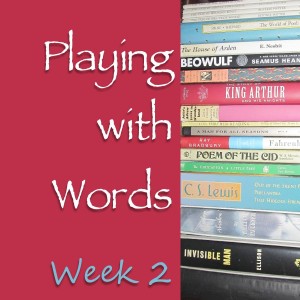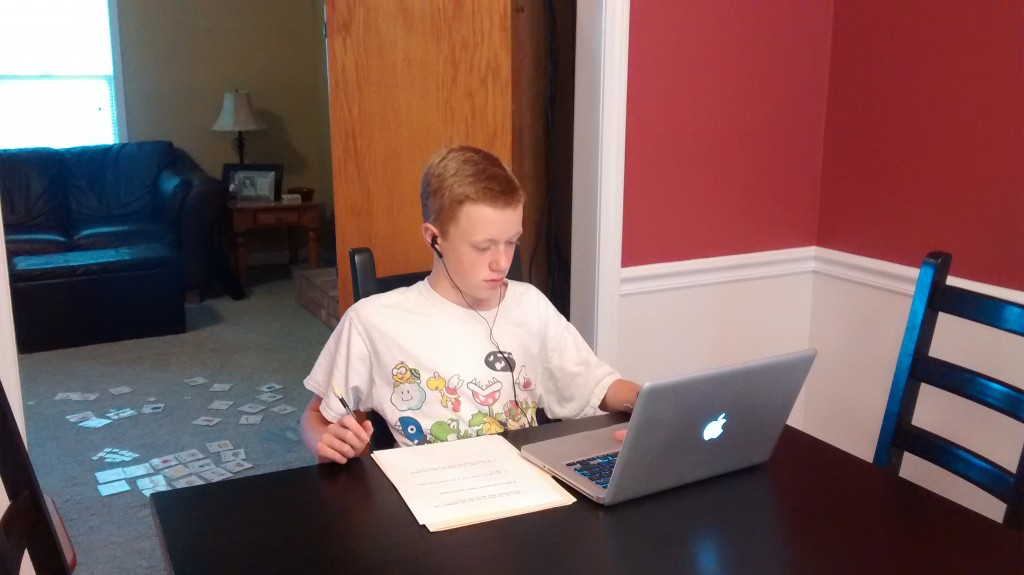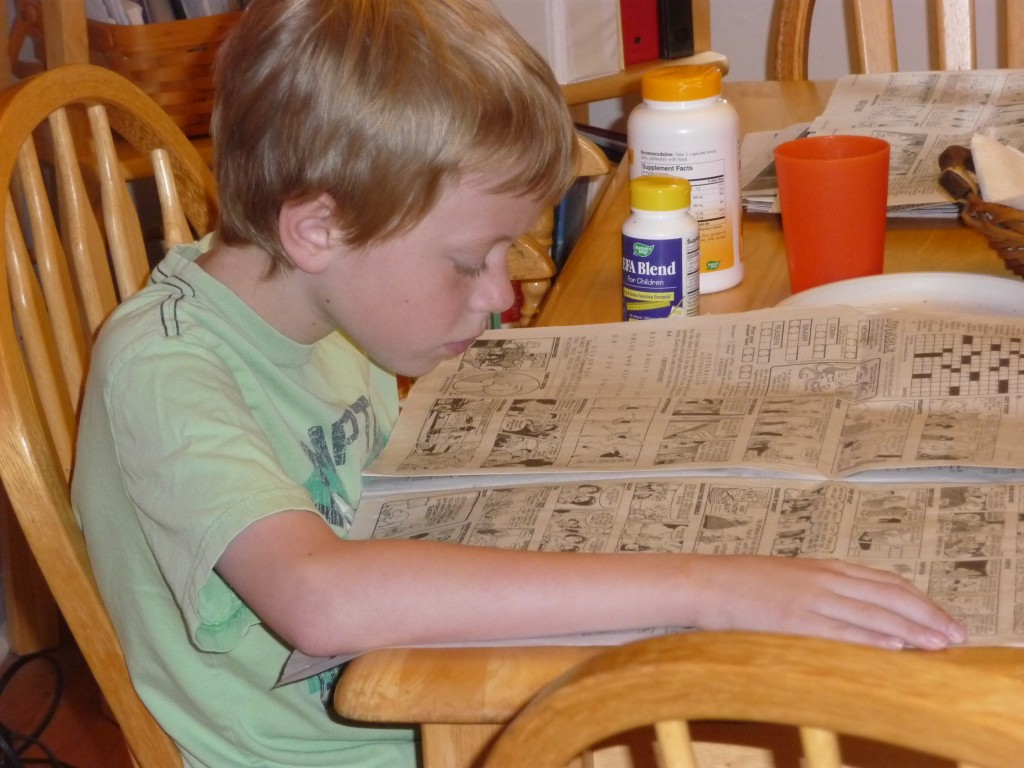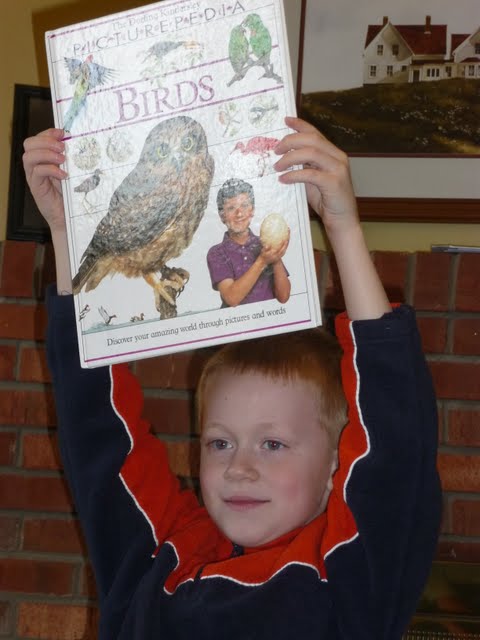 I would like to begin this week’s submission to the Virtual Curriculum Fair with a disclaimer. I am not an expert on special education, and I have no training in teaching children with reading delays. What I have is experience with my own 14 year old son who is on the autism spectrum. However, we have not found any perfect solutions to his reading delays, and we’re still plodding along this educational journey.
I would like to begin this week’s submission to the Virtual Curriculum Fair with a disclaimer. I am not an expert on special education, and I have no training in teaching children with reading delays. What I have is experience with my own 14 year old son who is on the autism spectrum. However, we have not found any perfect solutions to his reading delays, and we’re still plodding along this educational journey.
Letter Recognition
We knew that William, our 3rd child, was different from our older children by the age of 3 or 4. There were several little clues. (For the sake of brevity and keeping to the topic of reading, I’m only going to discuss differences in the area of reading and reading readiness.) One is that William was a late talker, but not alarmingly late. He liked to look at books and be read to, but at the age of 4, I realized that he wasn’t learning things that my older two had learned naturally. For example, he could sing the alphabet song, but he couldn’t recognize the letters and didn’t know any of the corresponding sounds.
Decoding
We worked on letters and sounds for a while, waiting on further reading instruction knowing that a child must be ready developmentally in order to read. When William was about 6, I started trying various phonics programs to teach him to read. All About Spelling finally seemed to crack the code and get him started reading. (The companion curriculum, All About Reading didn’t exist at that time.)
Reading Comprehension
However, reading is not just decoding. William is a pretty good decoder. What he lacks is reading comprehension. Sadly, his reading comprehension level has not improved very much over the years that he’s been successfully decoding words. His lack of comprehension has negatively impacted all his other school subjects because reading is an integral part of most curricula. Even in math, he struggles with understanding the instructions. Word problems are a big issue. A huge portion of history and science knowledge is most easily acquired by reading.

Moving Forward
This delay has left William with deficits in all areas of his education. I’ve tried a few different strategies and ideas over the last several years, but the main thing that I’ve done is wait. I work through his math word problems with him. He’s learned science through videos and a small amount of history from audio books. I guess I’ve been hoping that one day the reading comprehension will just be there.

I’m not saying it wasn’t a good idea to wait. However, the time has come to revisit some of the former things we tried briefly and give them more time to see if they help. I think that I tend to expect results quickly or at least some indication of positive results and am discouraged without that. I doubt I’m alone in that desire.
Strategies
Here are some things that I am or will be trying. I haven’t decided how much to do at once. Right now, I’ve only started on number one.
- Reading Detective – This is a program from The Critical Thinking Company. I bought this a couple of years ago and tried about 2 lessons then put it away because it was too frustrating. I pulled it out again last week and tried the 3rd lesson. As much as I want this to be an independent activity, I can see that for this to work, I’m going to have to guide him through this for a while.
- Immersion Reading with Kindle books – This is something I also started a couple of years ago, but with technical difficulties I didn’t continue to use it. I am ready to start this again. I know immersion reading has been tremendously helpful to other struggling readers.
- Visually appealing factual books – I have some great Usborne and other books that I need to subtly encourage William to read. Short snippets of text for gleaning facts that he’s interested in can help him to enjoy reading and increase his confidence.
- Brain Balance Therapy – I read Disconnected Kids by Dr. Robert Melillo a couple of years ago and found that his ideas made a lot of sense. Part of me wants to try the exercises, but another part of me is hesitant. I think, “What do we have to lose?” but then also worry about my trying to “fix” him. I will be looking over the book again trying to decide whether to try it.
Do any of you have experience with teaching reading comprehension? What are some strategies that have helped your student?
Please visit my fellow homeschool bloggers who are writing about Playing with Words this week:
All posts will be live by Monday, January 9th at noon EST.
Delight Directed High School English by Susan @ Homeschooling Hearts & Minds
Act Your Part Well- 2017 VCF by Lisa @ Golden Grasses
The Search For Language by Michele@Family, Faith and Fridays
Our Top Picks for Language Arts by Amanda H @ Hopkins Homeschool
Multiple Approaches to Language Arts in 2017 by Laura @ Day by Day in Our World
How We Cover the Language Arts in Our Homeschool by Joelle @ Homeschooling for His Glory
Use Your Words by Laura @ Four Little Penguins
The Art of Perfecting Macarons by Jennifer @ A Glimpse of Our Life
Loving Languages Every Day by Jen K @ A Peace of Mind
Speech Therapy & Elementary Latin by Yvie @ Gypsy Road
The Readin’ and Writin’ Part of Homeschool by Shecki @ Greatly Blessed
Children Who Love Books by Lizzy @ Peaches At Home
Customizing High School Language Credits by Christy @ Unexpected Homeschool
A Poetry Feast by Sarah @ Delivering Grace
Teaching Language Arts without Curriculum by Brittney @ Mom’s Heart
I know your pain and it is worth it! by Kim @ Good Sweet Love
Language Arts: Our Style by Annette @ A Net in Time
Words! Words! Words! by Lisa M @McClanahan 7
10 Wonderful Word Games (+1) by Lori @ At Home: where life happens
Finding the Right Words by Kym @ Homeschool Coffee Break
Teaching Grammar and Writing Through Discussion by Chelli @ The Planted Trees

By Kristen H.



Thanks for sharing! I wish you great success!
I have to admit, with one lad I haven’t had to deal with this issue and have NO ideas about how to help you.
No expert here either, but he likes listening to things, I would find as many science and history based audios I could. Even Drive Through History might interest him. Sounds like you are doing a great job finding things that are a good fit for your son!
I tend to rely on Narration to check reading comprehension. It’s simple, but has been effective for us so far.
Thank you for sharing how you’ve been working through your son’s learning challenges. I know it can be very frustrating when they struggle like this.